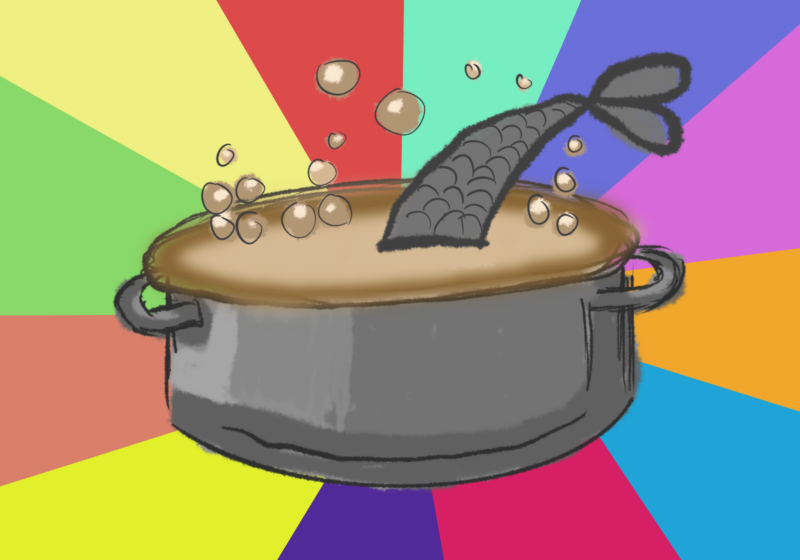Closed-mindedness
In a recent issue of the Campus Times, multicultural organizations drew sharp criticism from the Online Editor, Michael He – “Multiculturalism far from ‘multi,'” Sept. 25, page 6. In it, he implicates groups such as the Korean American Students’ Association and the Chinese Students’ Association of self-segregation and selective exclusion based solely on the grounds of ethnicity. However, the malicious tone he has set for the entirety of his editorial obscures his underlying arguments so much to the point where it could be construed as slanderous to the members of such organizations. In the eyes of many, his words were damaging, offensive, and discrediting to the people who have invested hundreds of hours of collective work to promote their cultures with events such as Korea Night, Tropicana, Mela, and China Night, to name a few.
A major point that He makes hinges on the observation that multicultural organizations have many members of the very culture they are trying to advocate. While this is not untrue, He has failed to realize that many members of such organizations are not of identical ethnicity. In his zeal to accuse organizations of stereotyping and lack of diversity, he has himself become guilty of the very discrimination that he condemns. To use He’s terms, one does not need to “infiltrate” a multicultural organization. It simply takes an open mind, a curiosity for the culture, and the willingness to explore that culture by joining one of the many groups on campus designed for that exact purpose. In the same vein, He says that “ethnic clubs have become like support groups.” While this is generally untrue, students do sometimes look to these multicultural organizations for guidance from people who understand their cultural heritage and background, and to ridicule a person who is actively seeking support is wrong on a very fundamental level.
Stereotypes will only exist in the minds of the people who perceive them. Some of the core values of all multicultural organizations here on campus are to encourage understanding, promote diversity, and simultaneously celebrate the many different heritages that exist. Nevertheless, the concerns that He raises are at least somewhat disturbing. It may be the case that a significant portion of the general student body shares He’s opinions. If this is true, then what must be done to reverse the negative opinions held by so many? His article had nothing to say on this subject, and a criticism is only constructive when suggestions are made. However, we truly hope that the UR student body does not universally share He’s negative opinions. A listing of SA-sponsored organizations supportive of these beliefs is included below, and we strongly encourage everyone with interest to attend our meeting.
Korean American
Students’ Association, Chinese Students’ Association,
Spanish And Latino
Students’ Association,
Vietnamese Students’ Association
Misguided views
Before I begin I would like to state that I do not condone or agree with what Michael He has stated in his article but I also think there are other underlying issues that minority groups should think about before taking action. While what Michael He has said is a gross mischaracterization of certain organizations I think that he is entitled to his own opinions in his editorial piece. I think likewise it is important that the groups in question like the Korean American Students Association speak out against articles they find offensive. It is important to remember that the dialogue that the article creates between groups like KASA, CSA and the Campus Times helps to educate all members of our community about our organizations. In response to Michael He’s claims, it seems that the cultural clubs are inclusive of individuals that are outside of ethnic category that are promoted by the clubs.
For example, ADITI’s Mela, held in the spring, has many individuals that are not south- east Asian participate in the show. His claim also fails to recognize that some individuals who may be ethnically different from the general population have been either born and/or raised in the United States and have a disconnect with their cultural heritage. With that said, I would like to say that I fully support KASA’s complaint against Michael He’s article. I also support Michael He’s right to write the article, though not the content of the article. The Gay Alliance Against Defamation was created for a reason – to utilize free speech to benefit marginalized individuals.
-nafees nuruddin
Pride Network Co-Director
Club not exclusive
In Michael He’s Sept. 25th Campus Times editorial entitled “Multiculturalism far from Multi,” he lambastes what he perceives to be the cliquish nature of multicultural student associations. He argues that these organizations are by and large segregated by ethnicity, and are hence more monocultural than multicultural. While almost no one takes contention with He’s claims about the predominantly homogeneous composition of most student associations, the Taiwanese American Students Association and other multicultural groups do disagree with his conclusions about the groups.
The Taiwanese American Students Association, like other multicultural clubs, has many reasons for existing. One of the most important of those reasons is to educate our members and the UR community at large about Taiwanese heritage. It also serves as a forum for students, Taiwanese or otherwise, to come together and learn more about each other. This inclusive approach has led to great diversity in TASA membership. In fact, most TASA students are not Taiwanese at all. Meetings commonly consist of students from mainland China, first and second generation Asian-American students, African-American and white students.
None of the members of TASA were coerced into attending meetings, or are doing it in order to “infiltrate” the ranks – all of them attend because they take a genuine interest in learning more about the Republic of Taiwan.
It would be easy to dismiss less diverse organizations as cliquish and self-inclusive. However, He overestimates the importance of the fact that most members of multicultural organizations actually belong to the same ethnic group. He fails to realize that most students who join them are passionate about, or at the very least emotionally attached to, their heritages. While Michael He labels this phenomenon as “support group” mentality, TASA believes that it is neither unexpected nor abhorrent that most students who join multicultural groups might actually belong to the culture that is the focus of the club. It is not irrational that, for example, an Indian student would want to join ADITI. What He seems to be arguing is that students join such organizations to the exclusion of others, and that the often-homogenous nature of these groups tends to insulate their members from other ethnic groups. As to the first claim, TASA holds that He could not be further from the truth. Organizations such as ADITI, the Black Students’ Union, CSA, KASA, Pride Network, SALSA, and TASA open their doors to anyone who is willing to open their minds and participate in their meetings. Furthermore, these organizations are not passive in their attempts to affect greater diversity. Pride Network, to take one example, vociferously encourages heterosexuals to support the GLBTQF community as “gay allies” or even “metrosexuals.” Combating small-mindedness is one of the common themes uniting multicultural organizations.
He’s editorial, despite its less-than-ceremonious reception from multicultural organizations, has served as a catalyst to more cross-cultural discussion. Multicultural groups have had to look at themselves and at each other and ask themselves if they were indeed guilty of these allegations. Lest public perception of these clubs deteriorate swiftly, multicultural groups will be more vigilant against behaviors that might lead to a perception of self-inclu
sion. TASA, for one, will not tolerate being an organization that does not simultaneously reach out to non-Taiwanese students while serving its fundamental mission to promulgate Taiwanese culture and celebrate its heritage.
To be sure, Michael He has an absolute right to formulate his own opinions about multicultural groups. Just as assuredly as he has a right to formulate his opinions, He also has the right – if not the duty – to express them to others regardless of their perceived novelty or proximity to popular views. To paraphrase Supreme Court Justice Anton Scalia, the First Amendment without protections of unpopular views is like Hamlet without a prince. TASA believes that freedom of speech means nothing if it fails to extend to unpopular views.
Taiwanese American Students’ Association




